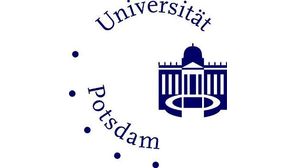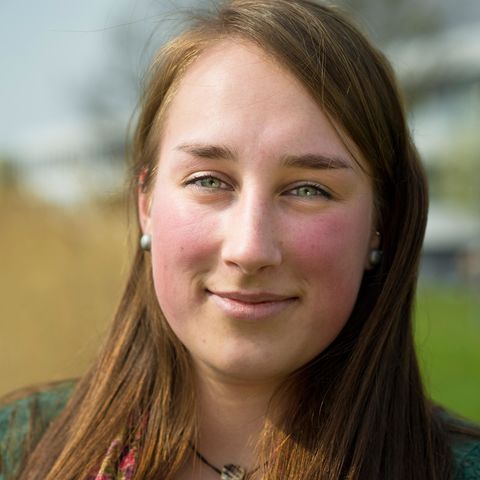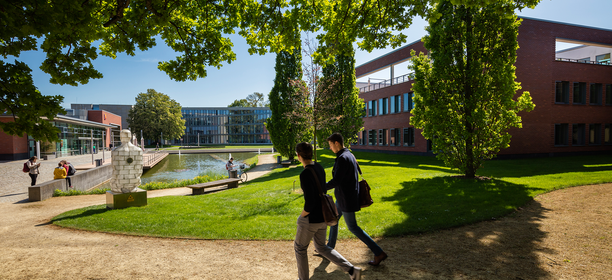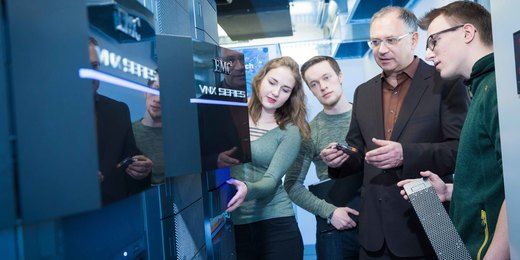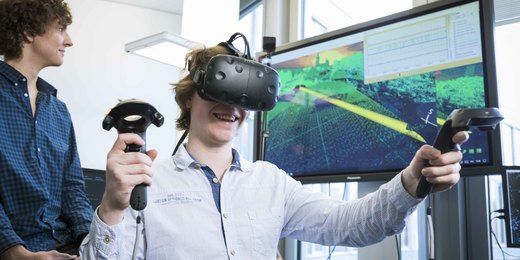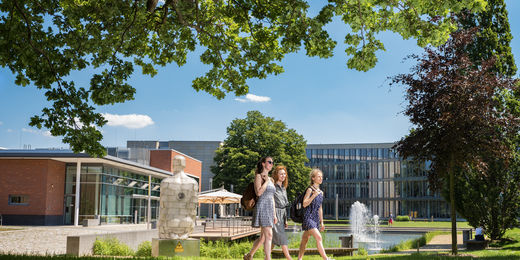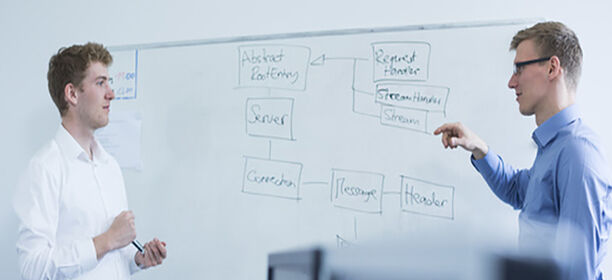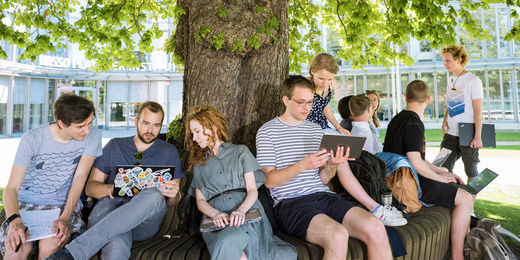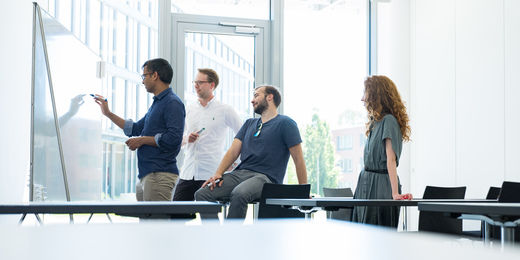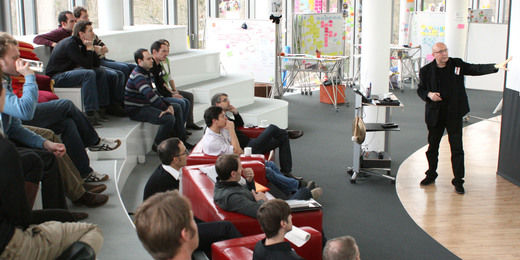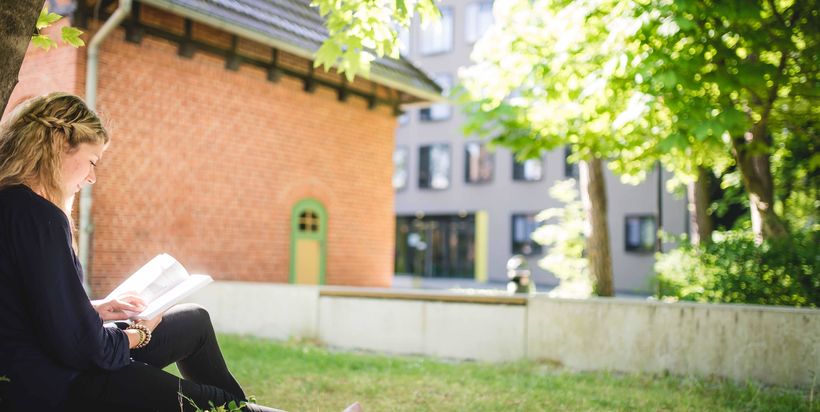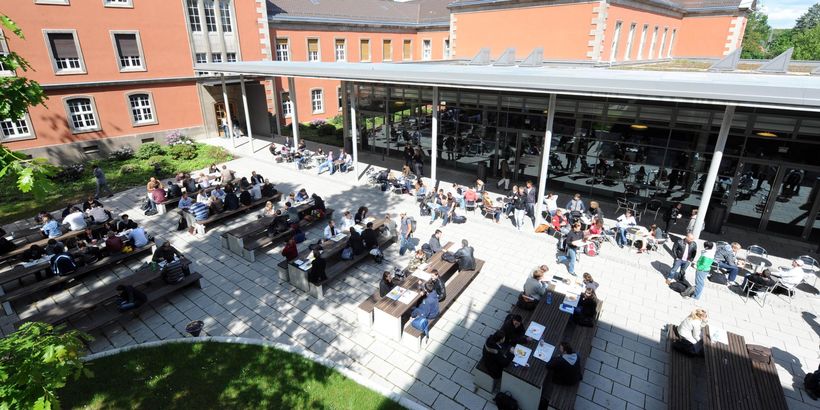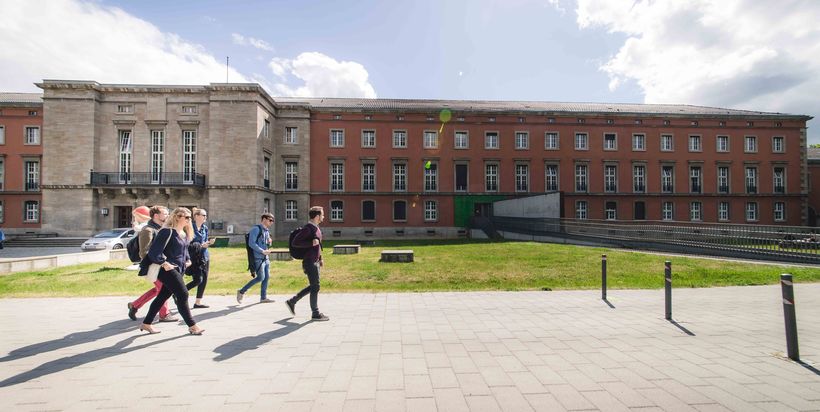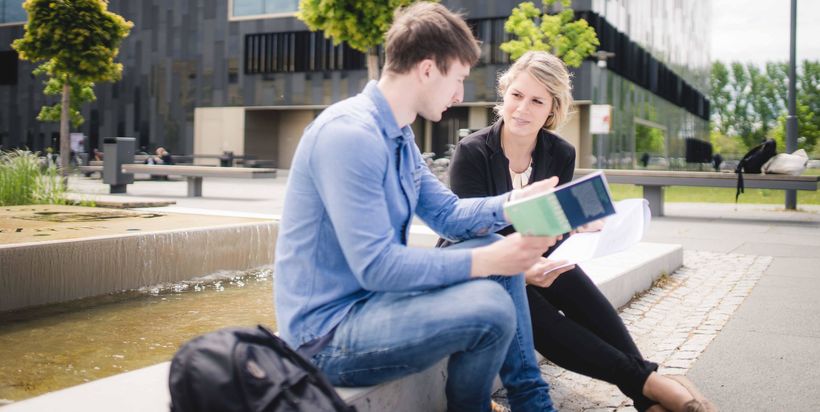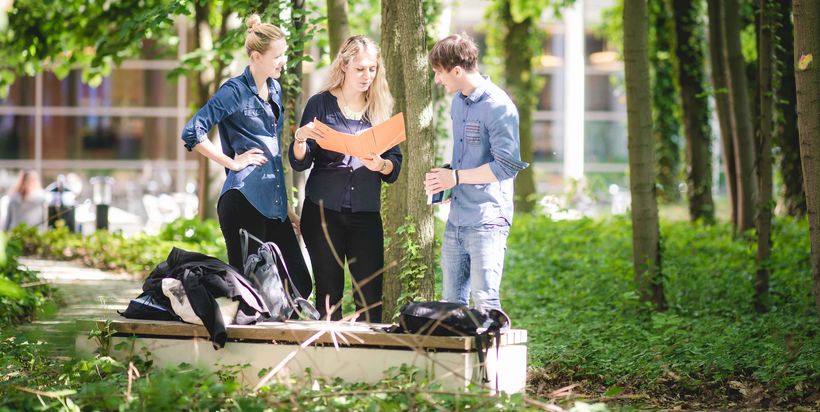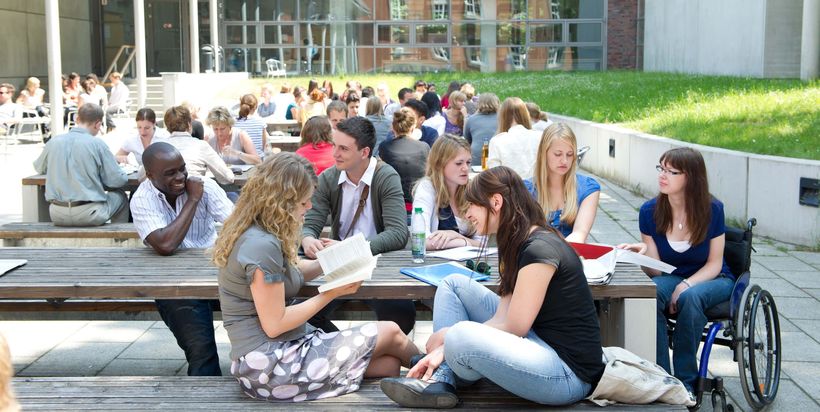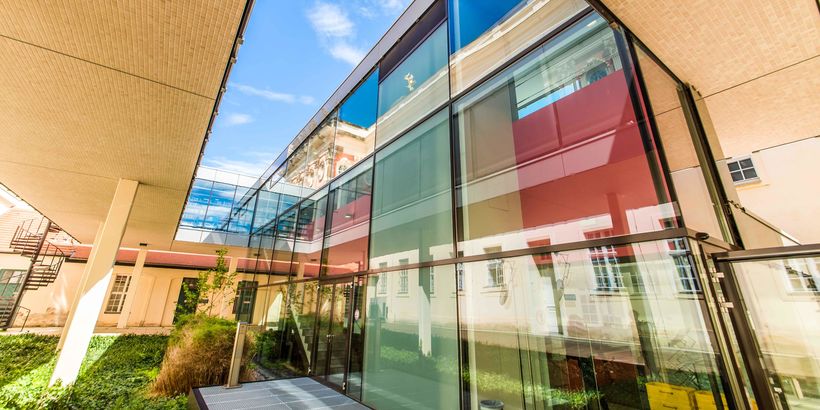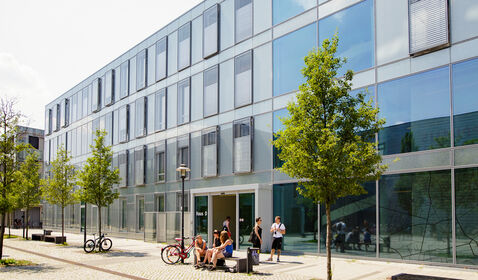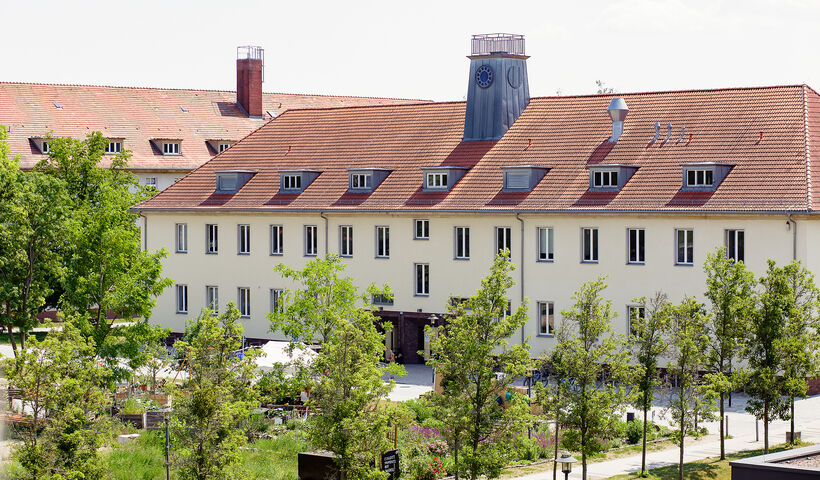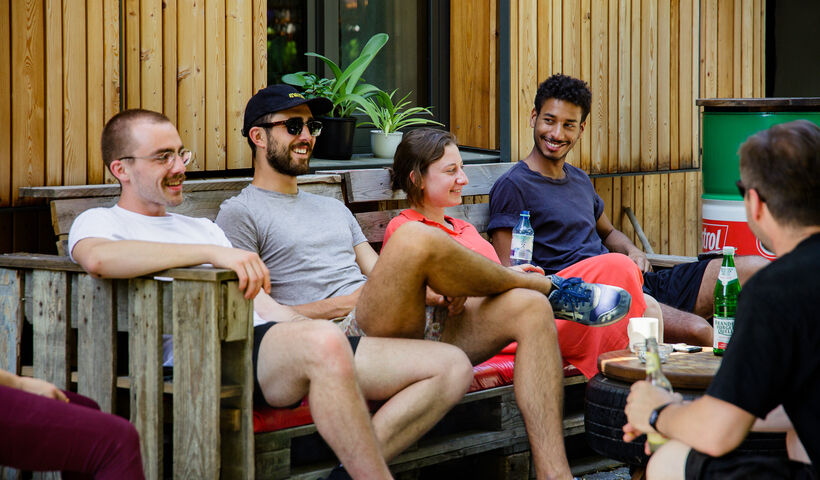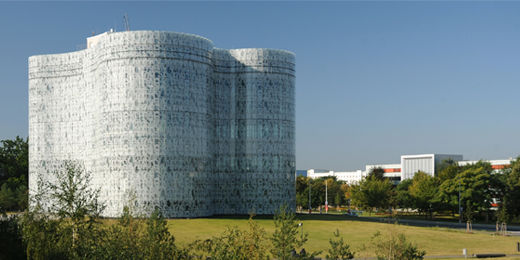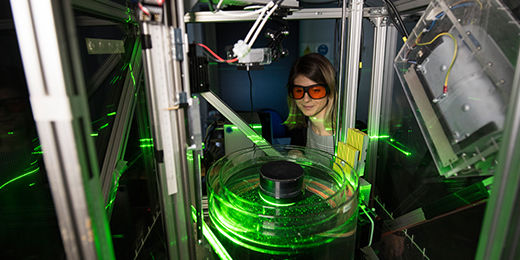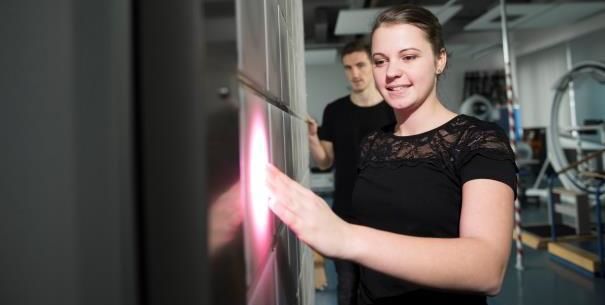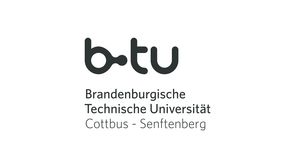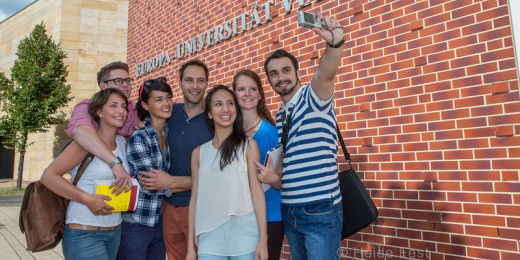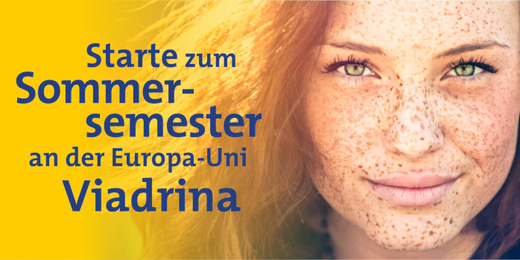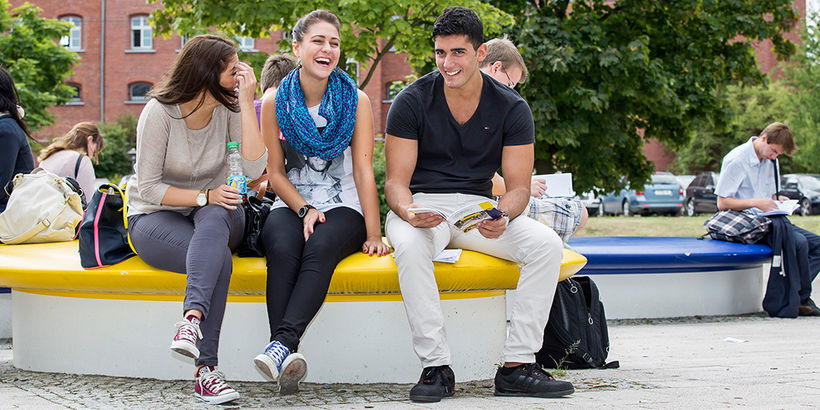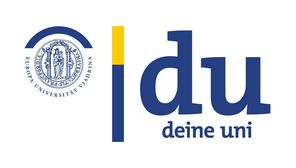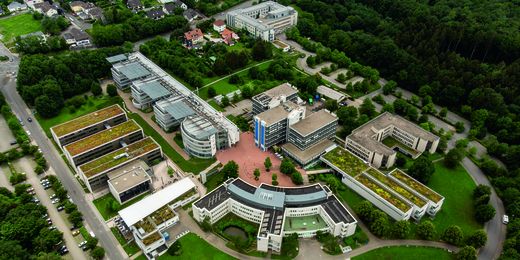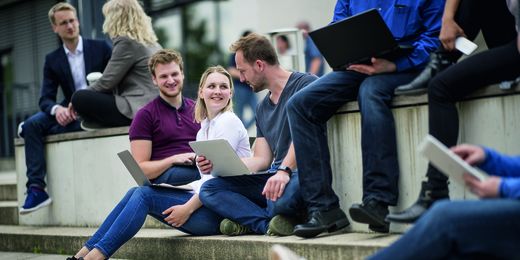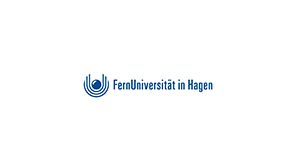Universität Potsdam
- Promotionsrecht: Ja
- Trägerschaft: öffentlich-rechtlich
- 1991 gegründet
- 20.899 Studierende
Wo Wissen wächst - Zukunft studieren mit Profil.
Die Universität Potsdam hat sich seit Ihrer Gründung 1991 einen herausragenden Platz in der Hochschul- und Wissenschaftslandschaft der Region Berlin-Brandenburg erarbeitet und punktet mit einem vielfältigen Studienangebot, das in ein ausgeprägtes, interdisziplinäres Forschungsprofil eingebettet ist.
Hochschule im Fokus
Studierende können unter einer Vielzahl von Ein-Fach- und Kombinationsstudiengängen wählen und ihren individuellen Begabungen und Neigungen nachgehen.
Einige Studienrichtungen lassen sich in dieser Form ausschließlich an der Universität Potsdam studieren: Die "Jüdischen Theologie", die "Patholinguistik" oder das Fach "IT-Systems Engineering" am angegliederten Hasso-Plattner-Institut für Softwaresystemtechnik gehören dazu. Neben diesem breiten Studienangebot, wozu auch - in Brandenburg einmalig - das "Lehramtsstudium" zählt, gibt es zahlreiche andere Gründe, die für ein Studium an der Potsdamer Alma Mater sprechen.
Die Universität Potsdam hat das Ziel, Lehre nicht losgelöst zu betrachten, sie ist vielmehr stets eingebunden und angetrieben durch aktuelle Forschungsergebnisse in den Fakultäten und außerhalb der Universität. Hierbei profitieren die Studierenden ganz besonders vom Standort Potsdam. Vor Ort ist eine Vielzahl von außeruniversitären Forschungseinrichtungen angesiedelt, welche die Lehre befruchten, den Dialog zwischen Theorie und Praxis fördern und nicht zuletzt Beschäftigungsmöglichkeiten nach dem Studium eröffnen.
AUSGEZEICHNET FÜR "EXZELLENZ IN DER LEHRE".
Die Anstrengungen der Universität für mehr "Exzellenz in der Lehre" blieben nicht unbemerkt. Im gleichnamigen Wettbewerb des Stifterverbands für die Deutsche Wissenschaft und der Kultusministerkonferenz wurde ihr Konzept mit einem Ersten Preis ausgezeichnet. Diesen hohen Standard zu halten und auszubauen, fühlt sich die Universität verpflichtet. Sie setzt dabei vor allem auf das Feedback von Studierenden und studentischen Gremien, mit denen im gemeinsamen Dialog Bestehendes evaluiert und Neues erdacht wird.
Die genannten Bemühungen um die kontinuierliche Verbesserung von Lehre und Studium spiegeln sich auch darin wider, dass die Universität Potsdam als eine der ersten deutschen Hochschulen das Siegel der Systemakkreditierung erhalten hat.
Potsdam: Studieren - Leben - Arbeiten
Am Neuen Palais 10
14469 Potsdam
Tel: 0331 977-0
Fax: 0331 972163
Hochschule im CHE-Ranking abschneiden.
Die Universität Potsdam gehört zu den Universitäten.
Ja, du kannst an der Universität Potsdam promovieren.
Die Universität Potsdam ist eine öffentlich-rechtliche Hochschule. Es gibt staatliche und staatlich anerkannte Hochschulen, die meist in Universitäten, Fachhochschulen (international: University of Applied Sciences) und Kunst- sowie Musikhochschulen unterteilt werden. Der überwiegende Teil der Hochschulen wird vom Staat finanziert und befindet sich daher in staatlicher Trägerschaft. Dort fallen in der Regel nur geringe Semesterbeiträge an. An den privaten Hochschulen hingegen, die sich über private Trägerschaften finanzieren, können wesentlich höhere Studiengebühren anfallen. Einen Weg, die finanziellen Hürden dieser Hochschulen zu umgehen, können Stipendien darstellen.
Es gibt außerdem Hochschulen, die von der protestantischen oder katholischen Kirche betrieben werden.
Die Universität Potsdam wurde im Jahr 1991 gegründet.
Insgesamt gibt es 20899 Studierende an der Universität Potsdam.
Standort dieser Hochschule ist Potsdam.
Hier findest du die Fristen und Termine für deine Bewerbung:
- Vorlesungszeit:
-
14.10.2024 - 07.02.2025
- Studienanfänger:
-
15.08.2024 - 15.09.2024
- Hochschulwechsler:
-
15.08.2024 - 15.09.2024Achtung, bevor eine Immatrikulation im höheren FS beantragt werden kann, muss eine Leistungsanerkennung und Einstufung in ein höheres FS erfolgen! Eine Einstufung ist erforderlich, wenn Sie zuvor in einem gleichen oder verwandten Studiengang immatrikuliert waren. Kontaktangaben und Formulare dazu finden Sie unter https://www.uni-potsdam.de/de/studium/konkret/pruefungsorganisation/anerkennungen.html (bitte 6 Wochen dafür einplanen)!
- International Studierende aus der Europäischen Union:
-
15.08.2024 - 15.09.2024Achtung, bevor eine Immatrikulation im höheren FS beantragt werden kann, muss eine Leistungsanerkennung und Einstufung in ein höheres FS erfolgen!
Kontaktangaben und Formulare dazu finden Sie unter https://www.uni-potsdam.de/de/studium/konkret/pruefungsorganisation/anerkennungen.html (bitte 6 Wochen dafür einplanen)!
- International Studierende aus Staaten, die nicht Mitglied der EU sind:
-
15.08.2024 - 15.09.2024Achtung, bevor eine Immatrikulation im höheren FS beantragt werden kann, muss eine Leistungsanerkennung und Einstufung in ein höheres FS erfolgen! Eine Einstufung ist erforderlich, wenn Sie zuvor in einem gleichen oder verwandten Studiengang immatrikuliert waren. Kontaktangaben und Formulare dazu finden Sie unter https://www.uni-potsdam.de/de/studium/konkret/pruefungsorganisation/anerkennungen.html (bitte 6 Wochen dafür einplanen)!
- Studienanfänger:
-
01.06.2024 - 15.07.2024
- Hochschulwechsler:
-
15.08.2024 - 15.09.2024Achtung, bevor eine Immatrikulation im höheren FS beantragt werden kann, muss eine Einstufung in ein höheres FS erfolgen (auf der Grundlage einer Leistungsanerkennung)! Eine Einstufung ist erforderlich, wenn Sie zuvor in einem gleichen oder verwandten Studiengang immatrikuliert waren. Kontaktangaben und Formulare dazu finden Sie unter https://www.uni-potsdam.de/de/studium/konkret/pruefungsorganisation/anerkennungen.html (bitte 6 Wochen dafür einplanen)!
- International Studierende aus der Europäischen Union:
-
01.06.2024 - 15.07.2024Achtung, bevor eine Immatrikulation im höheren FS beantragt werden kann, muss eine Leistungsanerkennung und Einstufung in ein höheres FS erfolgen!
Kontaktangaben und Formulare dazu finden Sie unter https://www.uni-potsdam.de/de/studium/konkret/pruefungsorganisation/anerkennungen.html (bitte 6 Wochen dafür einplanen)!
- International Studierende aus Staaten, die nicht Mitglied der EU sind:
-
01.06.2024 - 15.07.2024Achtung, bevor eine Immatrikulation im höheren FS beantragt werden kann, muss eine Leistungsanerkennung und Einstufung in ein höheres FS erfolgen! Eine Einstufung ist erforderlich, wenn Sie zuvor in einem gleichen oder verwandten Studiengang immatrikuliert waren. Kontaktangaben und Formulare dazu finden Sie unter https://www.uni-potsdam.de/de/studium/konkret/pruefungsorganisation/anerkennungen.html (bitte 6 Wochen dafür einplanen)!
- Studienanfänger:
-
01.04.2024 - 15.08.2024Die Information zur Bewerbungsplattform entnehmen Sie bitte dem aktuellen Masterstudienangebot unter
https://www.uni-potsdam.de/fileadmin/projects/studium/docs/01_studienangebot/06_master/studium_master.pdf .
- Hochschulwechsler:
-
01.04.2024 - 15.08.2024Voraussetzung für eine Bewerbung im höheren FS ist eine Einstufung in ein höheres FS durch das Fach, siehe https://www.uni-potsdam.de/de/studium/konkret/pruefungsorganisation/anerkennungen .
Die Information zur Bewerbungsplattform entnehmen Sie bitte dem aktuellen Masterstudienangebot unter
https://www.uni-potsdam.de/fileadmin/projects/studium/docs/01_studienangebot/06_master/studium_master.pdf .
- International Studierende aus der Europäischen Union:
-
01.04.2024 - 15.08.2024Falls bereits Leistungen vorliegen, bitte vor der Bewerbung beim Fach eine Einstufung in ein FS beantragen, siehe https://www.uni-potsdam.de/de/studium/konkret/pruefungsorganisation/anerkennungen .
Die Information zur Bewerbungsplattform entnehmen Sie bitte dem aktuellen Masterstudienangebot unter
https://www.uni-potsdam.de/fileadmin/projects/studium/docs/01_studienangebot/06_master/studium_master.pdf .
- International Studierende aus Staaten, die nicht Mitglied der EU sind:
-
01.04.2024 - 15.08.2024Falls bereits Leistungen vorliegen, bitte vor der Bewerbung beim Fach eine Einstufung in ein FS beantragen, siehe https://www.uni-potsdam.de/de/studium/konkret/pruefungsorganisation/anerkennungen .
Die Information zur Bewerbungsplattform entnehmen Sie bitte dem aktuellen Masterstudienangebot unter
https://www.uni-potsdam.de/fileadmin/projects/studium/docs/01_studienangebot/06_master/studium_master.pdf .
- Studienanfänger:
-
01.04.2024 - 01.06.2024Die Information zur Bewerbungsplattform entnehmen Sie bitte dem aktuellen Masterstudienangebot unter
https://www.uni-potsdam.de/fileadmin/projects/studium/docs/01_studienangebot/06_master/studium_master.pdf .
- Hochschulwechsler:
-
01.04.2024 - 15.08.2024Voraussetzung für eine Bewerbung im höheren FS ist eine Einstufung in ein höheres FS durch das Fach, siehe https://www.uni-potsdam.de/de/studium/konkret/pruefungsorganisation/anerkennungen .
Die Information zur Bewerbungsplattform entnehmen Sie bitte dem aktuellen Masterstudienangebot unter
https://www.uni-potsdam.de/fileadmin/projects/studium/docs/01_studienangebot/06_master/studium_master.pdf .
- International Studierende aus der Europäischen Union:
-
01.04.2024 - 01.06.2024Frist gilt nur für 1.FS!
Frist für höhere FS endet am 15.08. Voraussetzung für eine Bewerbung im höheren FS ist eine Einstufung in ein höheres FS durch das Fach, siehe https://www.uni-potsdam.de/de/studium/konkret/pruefungsorganisation/anerkennungen .
Die Information zur Bewerbungsplattform entnehmen Sie bitte dem aktuellen Masterstudienangebot unter
https://www.uni-potsdam.de/fileadmin/projects/studium/docs/01_studienangebot/06_master/studium_master.pdf .
- International Studierende aus Staaten, die nicht Mitglied der EU sind:
-
01.04.2024 - 01.06.2024Frist gilt nur für 1.FS!
Frist für höhere FS endet am 15.08. Voraussetzung für eine Bewerbung im höheren FS ist eine Einstufung in ein höheres FS durch das Fach, siehe https://www.uni-potsdam.de/de/studium/konkret/pruefungsorganisation/anerkennungen .
Die Information zur Bewerbungsplattform entnehmen Sie bitte dem aktuellen Masterstudienangebot unter
https://www.uni-potsdam.de/fileadmin/projects/studium/docs/01_studienangebot/06_master/studium_master.pdf .
- Vorlesungszeit:
-
08.04.2024 - 19.07.2024
- Studienanfänger:
-
Eine Immatrikulation fürs 1. FS eines grundständigen Studienganges ist zum Sommersemester nicht möglich.
- Hochschulwechsler:
-
Die Frist ist abgelaufen
- International Studierende aus der Europäischen Union:
-
Die Frist ist abgelaufen
- International Studierende aus Staaten, die nicht Mitglied der EU sind:
-
Die Frist ist abgelaufen
- Studienanfänger:
-
Eine Bewerbung fürs 1. Fachsemester eines grundständigen Studienganges ist zum Sommersemester nicht möglich.
- Hochschulwechsler:
-
Die Frist ist abgelaufen
- International Studierende aus der Europäischen Union:
-
Die Frist ist abgelaufen
- International Studierende aus Staaten, die nicht Mitglied der EU sind:
-
Die Frist ist abgelaufen
- Studienanfänger:
-
Die Frist ist abgelaufen
- Hochschulwechsler:
-
Die Frist ist abgelaufen
- International Studierende aus der Europäischen Union:
-
Die Frist ist abgelaufen
- International Studierende aus Staaten, die nicht Mitglied der EU sind:
-
Die Frist ist abgelaufen
- Studienanfänger:
-
Die Frist ist abgelaufen
- Hochschulwechsler:
-
Die Frist ist abgelaufen
- International Studierende aus der Europäischen Union:
-
Die Frist ist abgelaufen
- International Studierende aus Staaten, die nicht Mitglied der EU sind:
-
Die Frist ist abgelaufen
Als Fakultät wird eine Gruppe von Fächern oder eine Abteilung mit mehreren Wissenschaftsbereichen bezeichnet. Sie bildet eine
Lehr- und Verwaltungseinheit und ist für die Organisation von Forschung, Lehre und dem Studium an sich des jeweiligen Fachbereichs
verantwortlich.
An der Universität Potsdam gibt es folgende Fakultäten und Fachbereiche:
Die Universität Potsdam setzt sich aus fünf Fakultäten zusammen:
- Digital Engineering Fakultät
- Humanwissenschaftliche Fakultät
- Juristische Fakultät
- Mathematiisch-Naturwissenschaftliche Fakultät
- Philosophische Fakultät
- Wirtschafts- und sozialwissenschaftliche Fakultät
Informationen für Studieninteressierte:
- Vorlesungszeit:
-
14.10.2024 - 07.02.2025
- Studienanfänger:
-
15.08.2024 - 15.09.2024
- Hochschulwechsler:
-
15.08.2024 - 15.09.2024Achtung, bevor eine Immatrikulation im höheren FS beantragt werden kann, muss eine Leistungsanerkennung und Einstufung in ein höheres FS erfolgen! Eine Einstufung ist erforderlich, wenn Sie zuvor in einem gleichen oder verwandten Studiengang immatrikuliert waren. Kontaktangaben und Formulare dazu finden Sie unter https://www.uni-potsdam.de/de/studium/konkret/pruefungsorganisation/anerkennungen.html (bitte 6 Wochen dafür einplanen)!
- International Studierende aus der Europäischen Union:
-
15.08.2024 - 15.09.2024Achtung, bevor eine Immatrikulation im höheren FS beantragt werden kann, muss eine Leistungsanerkennung und Einstufung in ein höheres FS erfolgen!
Kontaktangaben und Formulare dazu finden Sie unter https://www.uni-potsdam.de/de/studium/konkret/pruefungsorganisation/anerkennungen.html (bitte 6 Wochen dafür einplanen)!
- International Studierende aus Staaten, die nicht Mitglied der EU sind:
-
15.08.2024 - 15.09.2024Achtung, bevor eine Immatrikulation im höheren FS beantragt werden kann, muss eine Leistungsanerkennung und Einstufung in ein höheres FS erfolgen! Eine Einstufung ist erforderlich, wenn Sie zuvor in einem gleichen oder verwandten Studiengang immatrikuliert waren. Kontaktangaben und Formulare dazu finden Sie unter https://www.uni-potsdam.de/de/studium/konkret/pruefungsorganisation/anerkennungen.html (bitte 6 Wochen dafür einplanen)!
- Studienanfänger:
-
01.06.2024 - 15.07.2024
- Hochschulwechsler:
-
15.08.2024 - 15.09.2024Achtung, bevor eine Immatrikulation im höheren FS beantragt werden kann, muss eine Einstufung in ein höheres FS erfolgen (auf der Grundlage einer Leistungsanerkennung)! Eine Einstufung ist erforderlich, wenn Sie zuvor in einem gleichen oder verwandten Studiengang immatrikuliert waren. Kontaktangaben und Formulare dazu finden Sie unter https://www.uni-potsdam.de/de/studium/konkret/pruefungsorganisation/anerkennungen.html (bitte 6 Wochen dafür einplanen)!
- International Studierende aus der Europäischen Union:
-
01.06.2024 - 15.07.2024Achtung, bevor eine Immatrikulation im höheren FS beantragt werden kann, muss eine Leistungsanerkennung und Einstufung in ein höheres FS erfolgen!
Kontaktangaben und Formulare dazu finden Sie unter https://www.uni-potsdam.de/de/studium/konkret/pruefungsorganisation/anerkennungen.html (bitte 6 Wochen dafür einplanen)!
- International Studierende aus Staaten, die nicht Mitglied der EU sind:
-
01.06.2024 - 15.07.2024Achtung, bevor eine Immatrikulation im höheren FS beantragt werden kann, muss eine Leistungsanerkennung und Einstufung in ein höheres FS erfolgen! Eine Einstufung ist erforderlich, wenn Sie zuvor in einem gleichen oder verwandten Studiengang immatrikuliert waren. Kontaktangaben und Formulare dazu finden Sie unter https://www.uni-potsdam.de/de/studium/konkret/pruefungsorganisation/anerkennungen.html (bitte 6 Wochen dafür einplanen)!
- Studienanfänger:
-
01.04.2024 - 15.08.2024Die Information zur Bewerbungsplattform entnehmen Sie bitte dem aktuellen Masterstudienangebot unter
https://www.uni-potsdam.de/fileadmin/projects/studium/docs/01_studienangebot/06_master/studium_master.pdf .
- Hochschulwechsler:
-
01.04.2024 - 15.08.2024Voraussetzung für eine Bewerbung im höheren FS ist eine Einstufung in ein höheres FS durch das Fach, siehe https://www.uni-potsdam.de/de/studium/konkret/pruefungsorganisation/anerkennungen .
Die Information zur Bewerbungsplattform entnehmen Sie bitte dem aktuellen Masterstudienangebot unter
https://www.uni-potsdam.de/fileadmin/projects/studium/docs/01_studienangebot/06_master/studium_master.pdf .
- International Studierende aus der Europäischen Union:
-
01.04.2024 - 15.08.2024Falls bereits Leistungen vorliegen, bitte vor der Bewerbung beim Fach eine Einstufung in ein FS beantragen, siehe https://www.uni-potsdam.de/de/studium/konkret/pruefungsorganisation/anerkennungen .
Die Information zur Bewerbungsplattform entnehmen Sie bitte dem aktuellen Masterstudienangebot unter
https://www.uni-potsdam.de/fileadmin/projects/studium/docs/01_studienangebot/06_master/studium_master.pdf .
- International Studierende aus Staaten, die nicht Mitglied der EU sind:
-
01.04.2024 - 15.08.2024Falls bereits Leistungen vorliegen, bitte vor der Bewerbung beim Fach eine Einstufung in ein FS beantragen, siehe https://www.uni-potsdam.de/de/studium/konkret/pruefungsorganisation/anerkennungen .
Die Information zur Bewerbungsplattform entnehmen Sie bitte dem aktuellen Masterstudienangebot unter
https://www.uni-potsdam.de/fileadmin/projects/studium/docs/01_studienangebot/06_master/studium_master.pdf .
- Studienanfänger:
-
01.04.2024 - 01.06.2024Die Information zur Bewerbungsplattform entnehmen Sie bitte dem aktuellen Masterstudienangebot unter
https://www.uni-potsdam.de/fileadmin/projects/studium/docs/01_studienangebot/06_master/studium_master.pdf .
- Hochschulwechsler:
-
01.04.2024 - 15.08.2024Voraussetzung für eine Bewerbung im höheren FS ist eine Einstufung in ein höheres FS durch das Fach, siehe https://www.uni-potsdam.de/de/studium/konkret/pruefungsorganisation/anerkennungen .
Die Information zur Bewerbungsplattform entnehmen Sie bitte dem aktuellen Masterstudienangebot unter
https://www.uni-potsdam.de/fileadmin/projects/studium/docs/01_studienangebot/06_master/studium_master.pdf .
- International Studierende aus der Europäischen Union:
-
01.04.2024 - 01.06.2024Frist gilt nur für 1.FS!
Frist für höhere FS endet am 15.08. Voraussetzung für eine Bewerbung im höheren FS ist eine Einstufung in ein höheres FS durch das Fach, siehe https://www.uni-potsdam.de/de/studium/konkret/pruefungsorganisation/anerkennungen .
Die Information zur Bewerbungsplattform entnehmen Sie bitte dem aktuellen Masterstudienangebot unter
https://www.uni-potsdam.de/fileadmin/projects/studium/docs/01_studienangebot/06_master/studium_master.pdf .
- International Studierende aus Staaten, die nicht Mitglied der EU sind:
-
01.04.2024 - 01.06.2024Frist gilt nur für 1.FS!
Frist für höhere FS endet am 15.08. Voraussetzung für eine Bewerbung im höheren FS ist eine Einstufung in ein höheres FS durch das Fach, siehe https://www.uni-potsdam.de/de/studium/konkret/pruefungsorganisation/anerkennungen .
Die Information zur Bewerbungsplattform entnehmen Sie bitte dem aktuellen Masterstudienangebot unter
https://www.uni-potsdam.de/fileadmin/projects/studium/docs/01_studienangebot/06_master/studium_master.pdf .
- Vorlesungszeit:
-
08.04.2024 - 19.07.2024
- Studienanfänger:
-
Eine Immatrikulation fürs 1. FS eines grundständigen Studienganges ist zum Sommersemester nicht möglich.
- Hochschulwechsler:
-
Die Frist ist abgelaufen
- International Studierende aus der Europäischen Union:
-
Die Frist ist abgelaufen
- International Studierende aus Staaten, die nicht Mitglied der EU sind:
-
Die Frist ist abgelaufen
- Studienanfänger:
-
Eine Bewerbung fürs 1. Fachsemester eines grundständigen Studienganges ist zum Sommersemester nicht möglich.
- Hochschulwechsler:
-
Die Frist ist abgelaufen
- International Studierende aus der Europäischen Union:
-
Die Frist ist abgelaufen
- International Studierende aus Staaten, die nicht Mitglied der EU sind:
-
Die Frist ist abgelaufen
- Studienanfänger:
-
Die Frist ist abgelaufen
- Hochschulwechsler:
-
Die Frist ist abgelaufen
- International Studierende aus der Europäischen Union:
-
Die Frist ist abgelaufen
- International Studierende aus Staaten, die nicht Mitglied der EU sind:
-
Die Frist ist abgelaufen
- Studienanfänger:
-
Die Frist ist abgelaufen
- Hochschulwechsler:
-
Die Frist ist abgelaufen
- International Studierende aus der Europäischen Union:
-
Die Frist ist abgelaufen
- International Studierende aus Staaten, die nicht Mitglied der EU sind:
-
Die Frist ist abgelaufen
Die Universität Potsdam setzt sich aus fünf Fakultäten zusammen:
- Digital Engineering Fakultät
- Humanwissenschaftliche Fakultät
- Juristische Fakultät
- Mathematiisch-Naturwissenschaftliche Fakultät
- Philosophische Fakultät
- Wirtschafts- und sozialwissenschaftliche Fakultät
Informationen für Studieninteressierte:
EINE UNIVERSITÄT - DREI STANDORTE.
Eingebettet in die einzigartige Kultur- und Wissenschaftslandschaft Potsdams, finden sich die drei großen Standorte der Potsdamer Universität über die gesamte Breite der Stadt verteilt. Studierende der Universität erleben am Standort "Am Neuen Palais" das barocke Flair von Preußens Glanz und Gloria. Der Wechsel zwischen den Standorten ist durch die Anbindung an Bahn und Bus leicht zu schaffen und durch intelligente Planung setzt sich die Uni das Ziel, Pflichtveranstaltungen überschneidungsfrei zu organisieren. Nach einer nur zehnminütigen Fahrt finden sich die Studierenden der Lehramtsfächer und Naturwissenschaften am Standort "Golm" wieder - einem hochmodernen Wissenschaftspark am Rande Potsdams. Die Verbindung aus der Tradition vom "Am Neuen Palais" und der modernen Hochtechnologiearchitektur "Golms" findet sich am Campus "Griebnitzsee".
EINE UNIVERSITÄT FÜR ALLE.
Das offene und tolerante Klima an der Uni sorgt für ideale Studienbedingungen für Studierende aus dem Ausland, Studierende mit Kindern, Studierende mit gesundheitlicher Beeinträchtigung oder Behinderung und allen anderen Studierenden gleichermaßen. Die Möglichkeit, am Standort Potsdam deutsche Geschichte und Kultur aus erster Hand zu erleben, lockt viele internationale Studierende an. Der persönliche Charakter der Hochschule erleichtert es ihnen, Kontakte zu Kommilitonen zu knüpfen und neue Freunde zu finden. Die Buddy-Initiative begleitet den Austausch deutscher und internationaler Studierender - ein Austausch, von dem beide Seiten profitieren. Auch Chancengleichheit wird an der Potsdamer Uni großgeschrieben. Bewusst wird mit veralteten, auf Hilfsbedürftigkeit ausgerichteten Denkweisen gebrochen. Stattdessen schaffen Studierende mit und ohne Behinderung gemeinsam eine Universität ohne Barrieren. Die Universität Potsdam ist außerdem eine für Familienfreundlichkeit ausgezeichnete Hochschule mit Betreuungsmöglichkeiten und Kinderspielplatz.
DER STUDIENORT POTSDAM: STUDIEREN - LEBEN - ARBEITEN.
Potsdam ist eine besondere brandenburgische Stadt. Das liegt nicht nur an ihrem Status als Landeshauptstadt. Neben ihrem historischen Erbe, bestehend aus den über die Landesgrenzen hinaus bekannten preußischen Schlössern und Gärten, bietet Potsdam ein vielfältiges Kunst- und Kulturleben, das jedes Jahr viele Gäste aus dem In- und Ausland anzieht.
In den vergangenen Jahren hat sich in Potsdam darüber hinaus eine rege studentische Kulturszene entwickelt, die mit einer breiten Palette an Veranstaltungen punktet. Ob Karaoke-Abende im StudentInnenkeller des Nils, Lesungen im KuZe (Studentisches Kulturzentrum) oder Kinoabende in der Studentenkneipe Pub à la Pub – in Potsdam ist für jedes Studierendenherz etwas dabei.
Außerhalb des studentischen Dunstkreises bietet Potsdam nicht weniger Vielfalt: neben den Sammlungen, wechselnden Ausstellungen sowie Veranstaltungen der Potsdamer Museen, wie dem Filmmuseum Potsdam, dem Haus der Brandenburgisch-Preußischen Geschichte, dem Potsdam Museum oder für den modernen Geschmack dem Museum FLUXUS+ bieten zahlreiche weitere Einrichtungen ein breites Spektrum an Kunst und Kultur.
Neben den etablierten und neu entstehenden Kultureinrichtungen der Stadt punktet Potsdam mit einer Fülle an Kulturevents, die auch überregionale Strahlkraft besitzen. Neben den Musikfestspielen Potsdam Sanssouci, dem Theaterfestival UNIDRAM und anderen Events sticht die Potsdamer Schlössernacht als Highlight jedes Sommers heraus. Hier verwandelt sich der Schlosspark Sanssouci zu einem riesigen Freilufttheater, durch das der barocke Hauch des 18. Jahrhunderts weht. Alle weiteren größeren und kleineren Kulturhighlights finden an dieser Stelle nicht Platz, sie sorgen jedoch für ein ganzjähriges, spannendes Programm in der Kulturmetropole Potsdam. Und sollte Potsdam dennoch nicht alle Vorlieben erfüllen können, ist der Weg nach Berlin nicht weit.



